A More Cost Effective Way Of Collecting Data from Your Oil Rigs
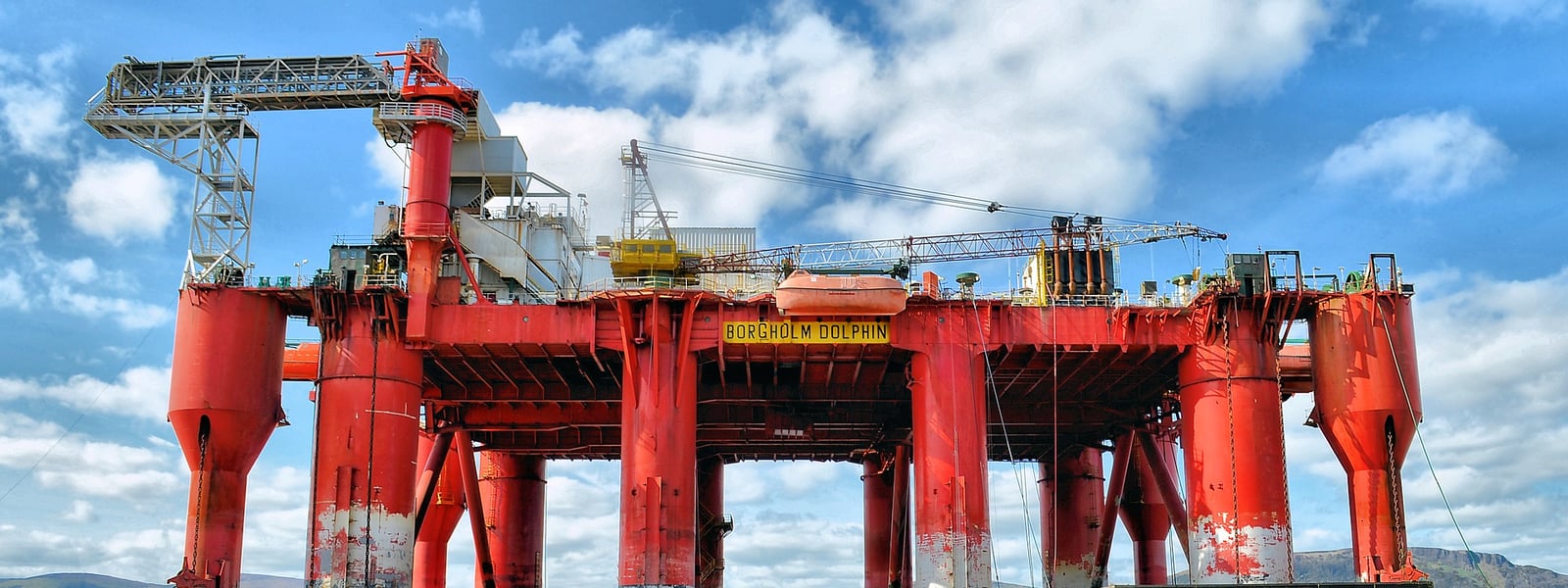
When you're an oil drilling company with a fleet of oil rigs, one of your routinary tasks is to collect data from those rigs on a daily basis. If you've already been doing this for some time now, you probably don't know that there are unnecessary development, maintenance, and administrative costs associated with data collection that you can now discard.
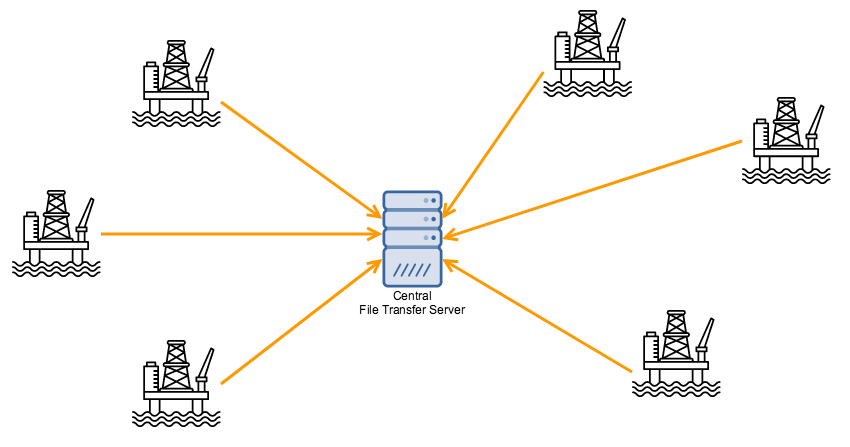
Currently, most oil drilling companies collect data from their rigs through a combination of scripts and file transfer servers. Some companies install some sort of clientscript on each oil rig that would periodically push the collected data to a central file transfer server.
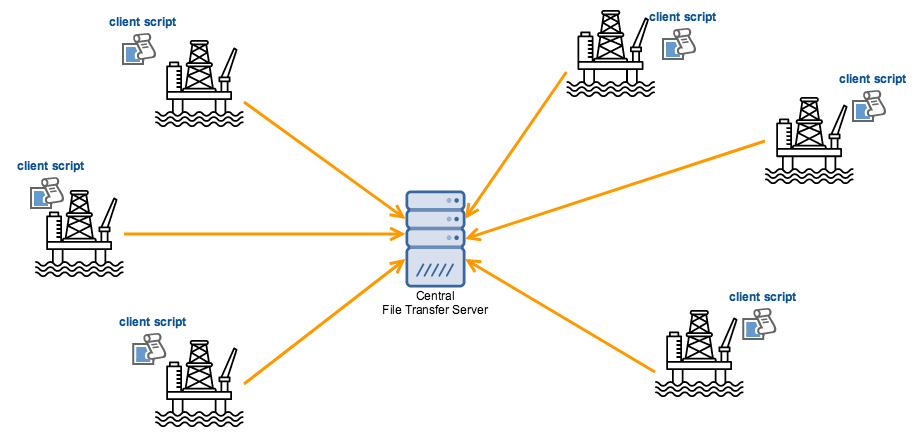
Other companies install a file transfer server (e.g. FTP or SFTP) on each oil rig and then have a more advanced file transfer server (e.g. JSCAPE MFT Server) act as a central hub which would connect to each oil rig and pull the data in.
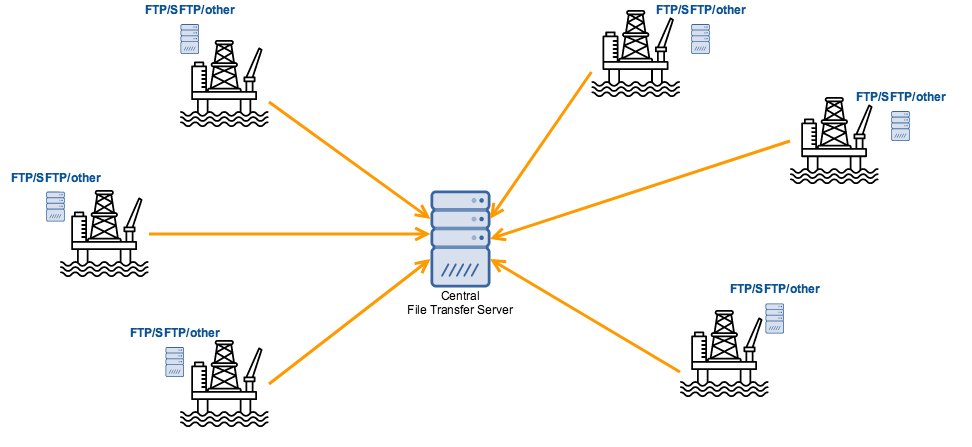
While each of these solutions will work, they come with certain problems:
1. Installing a script on each oil rig requires some coding, support and maintenance and possibly some licensing costs to be borne by the owner of the oil rig (there may be cases when the drilling company doesn't own the rig).
2. Installing a file transfer server on each oil rig would entail deployment, administrative, maintenance, and possibly licensing costs. You need someone with the technical knowhow to deploy, administer, and then troubleshoot those servers if the need arises.
3. None of these solutions give you control and visibility into your file transfers.
While you can replace your file transfer servers and client scripts with instances of JSCAPE MFT Server to reduce complexity (no need to write scripts) and some administrative/maintenance costs, it's going to be overkill and impractical (from a licensing standpoint) for this particular use case.
What you really need here is a solution that offers the following:
1. Complete control and visibility into your file transfer processes. You should be able to set the transfer schedule, run the transfers on demand, and see a log of all files transferred.
2. Minimal licensing costs, wherein the owner of the oil rig does not have to purchase a license or directly bear these costs.
3. Simplicity. The oil rig owner should be able to install a piece of software that requires no post-installation configuration and administration.
The perfect solution for a use case like this is JSCAPE MFT Synchronizer, a managed file transfer product consisting of two installable components: JSCAPE MFT Synchronizer and JSCAPE MFT Synchronizer Agent.
Point 1 is addressed by MFT Synchronizer, which would serve as the hub for executing synchronizations while also providing complete visibility. Point 2 & 3 are addressed by MFT Synchronizer Agent, which can be downloaded and installed free of charge (the licensee of MFT Synchronizer bears costs of number of Agents that are allowed to connect) and with minimal configuration required.
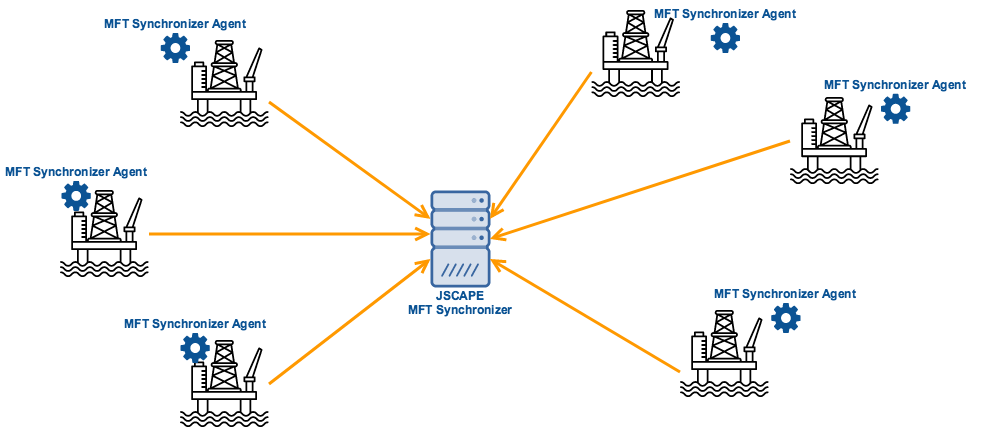
This is one use case, but as you may imagine it can be used across several industries. Below are some additional examples:
1. Large retailer needs to push pricing updates to all POS systems.
2. Water company needs to pull usage data from all subscribers.
3. Government agency needs to pull employment statistics from each of it's regional offices.
MFT Synchronizer Agent can be used in both push and pull modes and is centrally controlled using MFT Synchronizer.
Why don't you give MFT Synchronizer a test run? Download the FREE, fully-functional evaluation edition now:
For instructions on how to install, configure, and use MFT Synchronizer, refer to the online documentation.